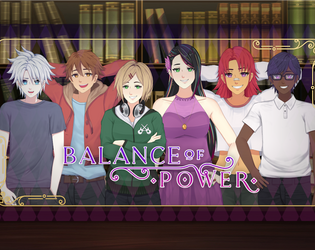Fans of *Civilization 7* have been buzzing with excitement following the discovery of evidence pointing to a fourth, unannounced Age in the game. This revelation comes from dedicated dataminers who have been scouring the game's files, uncovering hints of what might be coming next. In a recent interview with IGN, Firaxis, the game's developer, hinted at future plans that align with these findings.
In *Civilization 7*, a full campaign spans three distinct Ages: Antiquity, Exploration, and Modern. At the end of each Age, players and AI opponents undergo an Age Transition. This transition involves selecting a new civilization from the upcoming Age to represent their empire, choosing which Legacies to carry forward, and witnessing the evolution of the game world. This innovative system is a first for the *Civilization* series.
The current game timeline concludes the Modern Age before the Cold War, a decision confirmed by *Civilization 7* lead designer Ed Beach in the IGN interview. Beach explained that the team aimed to end the game at the conclusion of World War 2, stating, “We spent a lot of time looking at the ebbs and flows of history. Once we knew that our game would benefit by breaking it up into chapters, obviously the first thing we ask ourselves is, ‘well, when does a chapter start and when does a chapter end?’”
Beach elaborated on the historical reasoning behind the Age transitions. The Antiquity Age ends around the 300 to 500 CE period, reflecting the simultaneous decline of major empires across the globe. The transition from Exploration to Modern is marked by significant revolutions, such as the French and American Revolutions, which challenged established monarchies. The Modern Age concludes with the World Wars, a pivotal moment in history that allows for unique gameplay mechanics in each Age.
The possibility of a fourth Age has sparked curiosity among players, especially after executive producer Dennis Shirk teased future expansions. Shirk hinted at the potential for new systems, visuals, units, and civilizations specific to each Age, saying, “You can imagine the possibilities with this, honestly. The way that the design team set it up so that each age is chockfull of systems, visuals, units, Civs, all specific to that age, and what you could do with that and where you could take it… we can't talk about the specifics. We can just talk about it in generalities. We're excited for where this is going to go.”
Following Shirk's comments, dataminers discovered references to the Atomic Age within the game files, along with mentions of unannounced leaders and civilizations. This aligns with Firaxis' strategy of releasing DLC for previous *Civilization* games and suggests that the Atomic Age could be the next chapter in *Civilization 7*.
In the meantime, Firaxis is addressing community feedback to improve the game's reception. Take-Two CEO Strauss Zelnick acknowledged the mixed reviews but remains optimistic, stating that the “legacy Civ audience” will appreciate the game more as they continue to play, and described *Civilization 7*’s early performance as “very encouraging.”
For players looking to master *Civilization 7*, our comprehensive guides cover everything from achieving every victory type to understanding the significant changes from *Civilization 6*. We also provide insights into common mistakes to avoid, as well as detailed explanations of map types and difficulty settings to help you strategize your path to world domination.















